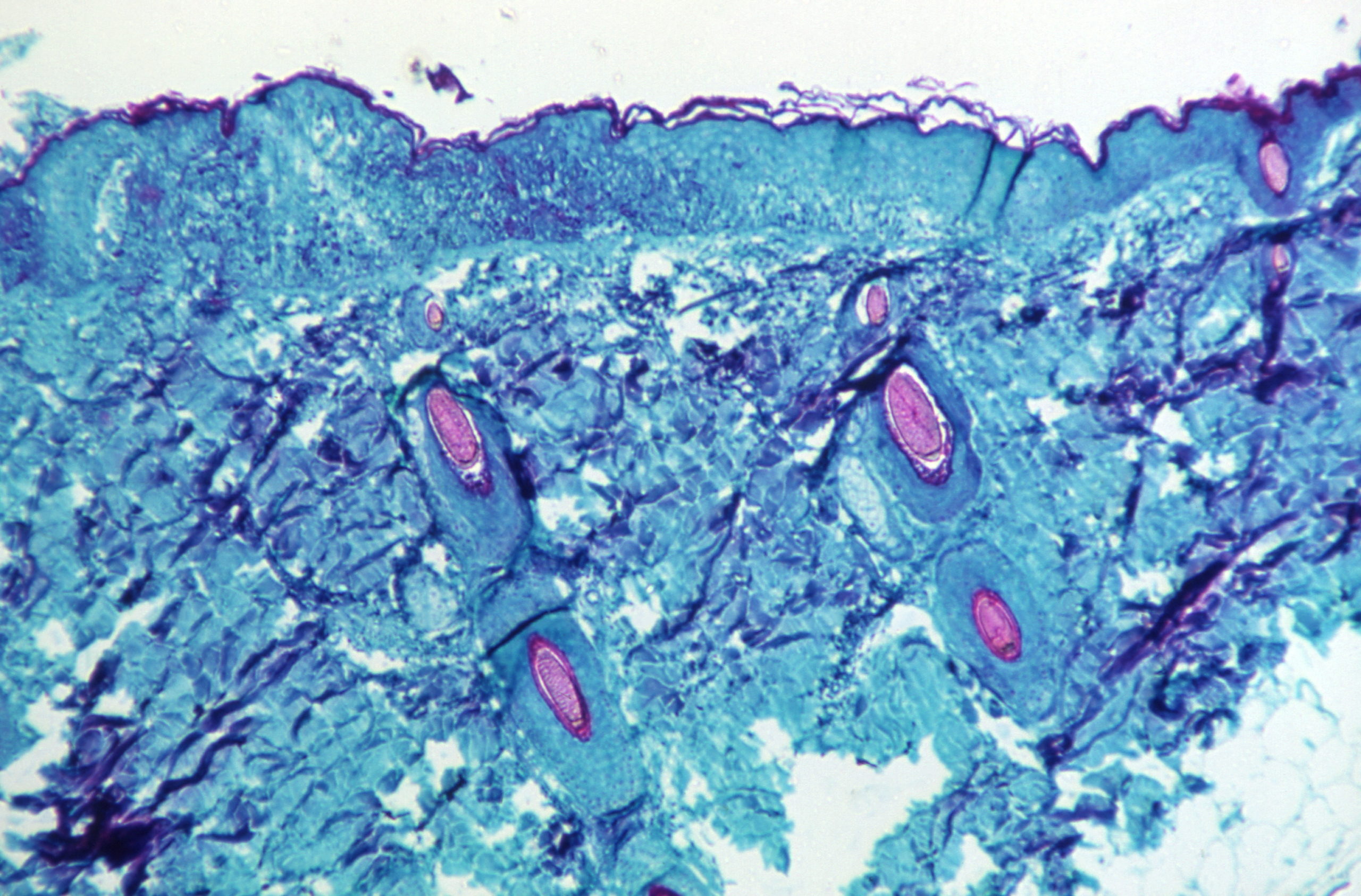Explainer: How concerned should we be about monkeypox?

FILE PHOTO: A section of skin tissue, harvested from a lesion on the skin of a monkey, that had been infected with monkeypox virus, is seen at 50X magnification on day four of rash development in 1968. CDC/Handout via REUTERS
NEW YORK — Global health officials have sounded the alarm over rising cases in Europe and elsewhere of monkeypox, a type of viral infection more common to west and central Africa.
As of Friday, some 80 monkeypox cases have been confirmed and an additional 50 are under investigation in 11 countries, according to the World Health Organization (WHO). The following is what is known about the current outbreak and relative risk of monkeypox:
HOW DANGEROUS IS IT?
The risk to the general public is low at this time, a U.S. public health official told reporters at a briefing on Friday.
Monkeypox is a virus that can cause symptoms including fever, aches and presents with a distinctive bumpy rash.
It is related to smallpox, but is usually milder, particularly the West African strain of the virus that was identified in a U.S. case, which has a fatality rate of around 1%. Most people fully recover in two to four weeks, the official said.
The virus is not as easily transmitted as the SARS-CoV-2 virus that spurred the global COVID-19 pandemic.
Experts believe the current monkeypox outbreak is being spread through close, intimate skin on skin contact with someone who has an active rash. That should make its spread easier to contain once infections are identified, experts said.
“COVID is spread by respiratory route and is highly infectious. This doesn’t appear to be the case with the monkeypox,” said Dr. Martin Hirsch of Massachusetts General Hospital.
Many – but not all – of the people who have been diagnosed in the current monkeypox outbreak are men who have sex with men, including cases in Spain linked to a sauna in the Madrid region.
WHAT HAS HEALTH EXPERTS CONCERNED?
The recent outbreaks reported so far are atypical, according to the WHO, as they are occurring in countries where the virus does not regularly circulate. Scientists are seeking to understand the origin of the current cases and whether anything about the virus has changed.
Most of the cases reported so far have been detected in the UK, Spain and Portugal. There have also been cases in Canada and Australia, and a single case of monkeypox was confirmed in Boston, with public health officials saying more cases are likely to turn up in the United States.
WHO officials have expressed concern that more infections could arise as people gather for festivals, parties and holidays during the coming summer months in Europe and elsewhere.
HOW CAN PEOPLE PROTECT AGAINST INFECTION?
The UK has begun to inoculate healthcare workers who may be at risk while caring for patients with the smallpox vaccine, which can also protect against monkeypox. The U.S. government says it has enough smallpox vaccine stored in its Strategic National Stockpile (SNS) to vaccinate the entire U.S. population.
There are antiviral drugs for smallpox that could also be used to treat monkeypox under certain circumstances, a spokesperson for the U.S. Department of Health and Human Services said in a statement.
More broadly, health officials say that people should avoid close personal contact with someone who has a rash illness or who is otherwise unwell. People who suspect they have monkeypox should isolate and seek medical care.
WHAT MIGHT BE BEHIND THE SPIKE IN CASES?
“Viruses are nothing new and expected,” said Angela Rasmussen, a virologist at the Vaccine and Infectious Disease Organization at the University of Saskatchewan in Canada.
Rasmussen said a number of factors including increased global travel as well as climate change have accelerated the emergence and spread of viruses. The world is also more on alert to new outbreaks of any kind in the wake of the COVID pandemic, she said.